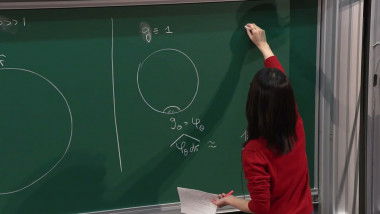
Furstenberg Sets Estimates with Application to Restriction Theory
By Hong Wang

Statistics meets tensors: methods, theory, and applications
By Anru Zhang
Appears in collections : Special events, 30 Years of Wavelets, 30 years of wavelets / 30 ans des ondelettes, Actions thématiques
We start with a brief historical account of wavelets and of the way they shattered some of the preconceptions of the 20th century theory of statistical signal processing that is founded on the Gaussian hypothesis. The advent of wavelets led to the emergence of the concept of sparsity and resulted in important advances in image processing, compression, and the resolution of ill-posed inverse problems, including compressed sensing. In support of this change in paradigm, we introduce an extended class of stochastic processes specified by a generic (non-Gaussian) innovation model or, equivalently, as solutions of linear stochastic differential equations driven by white Lévy noise. Starting from first principles, we prove that the solutions of such equations are either Gaussian or sparse, at the exclusion of any other behavior. Moreover, we show that these processes admit a representation in a matched wavelet basis that is "sparse" and (approximately) decoupled. The proposed model lends itself well to an analytic treatment. It also has a strong predictive power in that it justifies the type of sparsity-promoting reconstruction methods that are currently being deployed in the field.
Keywords: wavelets - fractals - stochastic processes - sparsity - independent component analysis - differential operators - iterative thresholding - infinitely divisible laws - Lévy processes
